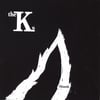 The Lamplighter probe was dying. Much of its processing core had been ripped away, so while it knew that it was crippled it did not know why. It also knew that its reactor cells were eating through what shielding remained between them. Soon they would merge into a supercritical mass microseconds before vaporizing the probe and its payload.
The Lamplighter probe was dying. Much of its processing core had been ripped away, so while it knew that it was crippled it did not know why. It also knew that its reactor cells were eating through what shielding remained between them. Soon they would merge into a supercritical mass microseconds before vaporizing the probe and its payload.
It was on the payload that the probe concentrated as it fell for the last time into a target system. Unable to adjust course, it ignored the fertile gas giants of the outer system. As rich as they were, there was no way to reach them. Instead the probe performed one final analysis on the fourth world, rocky and thinly shrouded in ammonia and carbon dioxide. Only a handful of the payload packages were designed for such places.
It experienced something akin to regret, noting the low probability of success as it chambered and ejected those few packages, loaded with lichen and pre-biotics tailored to that class of world. Perhaps it would bring forth a strange form of life, millions of years off. Or perhaps nothing.
As the probe reached perigee it struggled internally and computed its probable losses. Whole subsystems of control were shutting down as radiation spewed from the deteriorating reactor. In a decision-process fugue, it chambered and ejected each of the remaining payload units, firing them one after another at the unpromising planet.
The packages were designed for ocean worlds, spheres of molten lead buried in crushing atmospheres of sulfuric acid, toruses of methane shrieking around neutron stars, magnetic hellstorms flickering across shifting clusters of nickel-iron asteroids. Anything but this world. But they would certainly be destroyed when the reactor went, or when the debris of the probe fell into the system's star.
Package after package rained down on the planet. Slime molds and field-viruses swarmed from impact canisters. Spore-bound algae hissed from suborbital pods streaking through the lower ionosphere. Bacteria were inserted deep into polar ice fields on the tips of deep-penetrating missiles. All frothed and bloomed and died or recombined, struggling to shape their new world into a thousand incompatible ecosystems.
What was left of the Lamplighter felt an analog of satisfaction, and then it became light.
--Steve Kilian





No comments:
Post a Comment